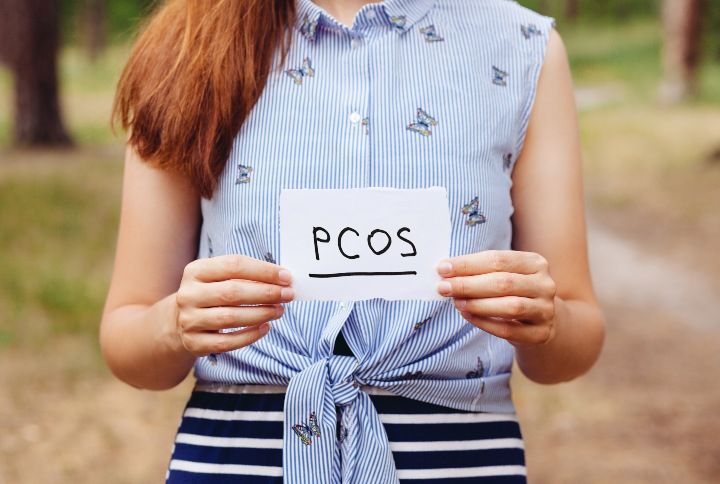
Polycystic Ovary Syndrome (PCOS) is a condition that affects hormone levels in women. This condition causes irregular or missed periods and affects fertility as well. For PCOS Awareness Month we invited Dr Roshani Sanghani to host an Ask Me Anything session on Malini’s Girl Tribe. Dr Sanghani is an Endocrinologist and as promised she continues to answer common questions related to PCOS. Scroll down to read all about it!
Q. What is the difference between PCOS and PCOD?
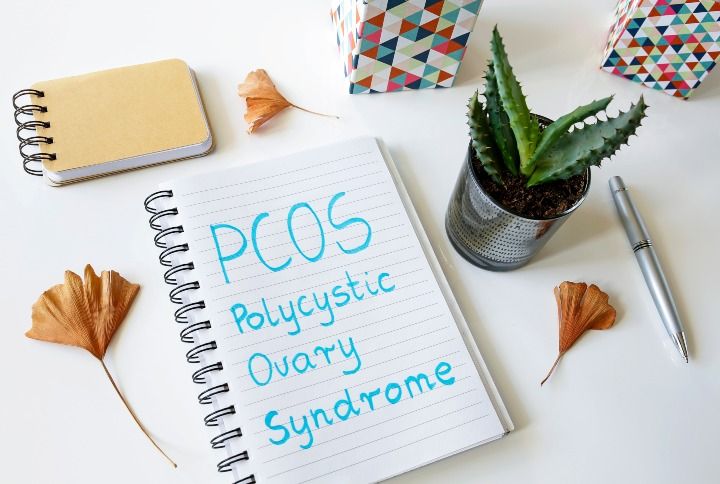
‘PCOD’ is used only in India. In the West, it’s called PCOS because it’s a syndrome, not a disease. It’s something that can be managed and people can live very well even if they have been given this diagnosis. Even if there is a genetic tendency, a teenager or a young woman has the ability to take her health in her hands through lifestyle change.
Q. Can hair fall be reversed once hormonal imbalance due to PCOD is fixed with exercise?
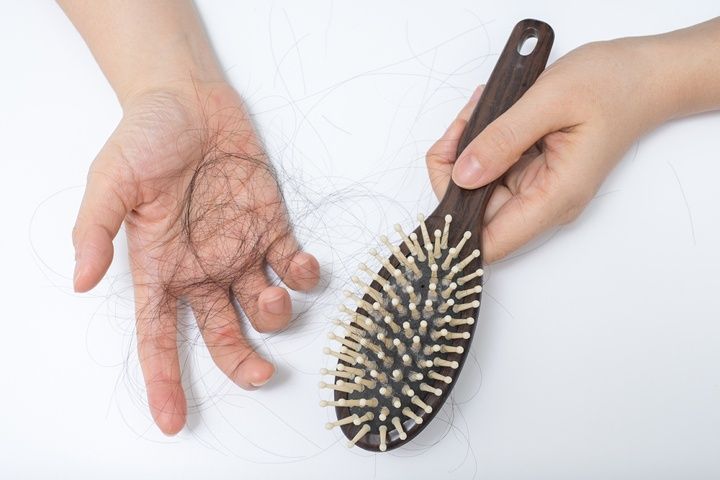
The hormone called dihydrotestosterone (DHT) is associated with the female pattern balding. If this hormone stays high for a very long time, the scalp can get affected. An endocrinologist and a dermatologist need to coordinate treatment to prevent permanent hair thinning. The role of an endocrinologist becomes to ensure that hair regrowth is supported through sufficient protein. Hair is made of protein that’s why we apply keratin, cysteine and plasma to the hair or scalp which are all proteins. Good quality of sleep gives growth hormone which helps the scalp repair itself. Balanced exercise is key too. Stress management is required because stress and anxiety cause hair fall which becomes a vicious cycle. It’s important to note that intermittent fasting is a tool used to reverse insulin resistance but can temporarily make hair fall worse so make sure the micro-nutrients are in place before fasting.
Q. How does one know if they might have PCOS?
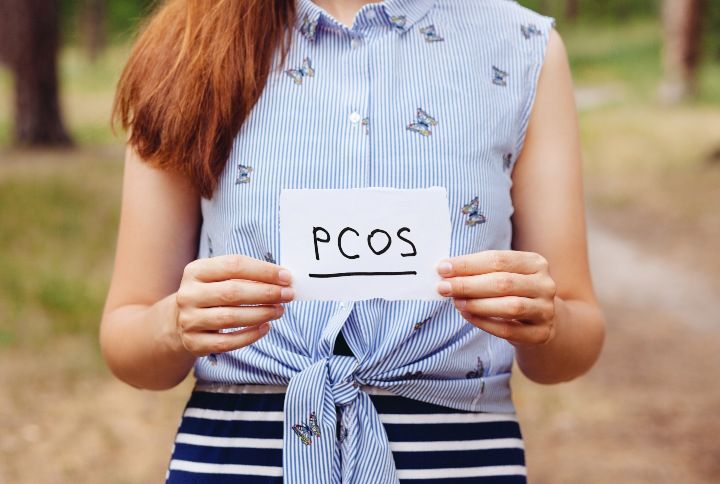
Symptoms of male-female hormone imbalance include:
- Irregular periods
- Irregular ovulation
- Reduced fertility
- Acne or boils
- Hirsutism, that is thick dark hair on areas where women normally have fine hair
- Male pattern balding (androgenic alopecia)
- Greasy scalp
- Greasy skin
- Tendency for dandruff
- Mood swings
- Reduced sex drive or libido
- If the woman does not have periods for many months at a time then there can be an unhealthy uterus lining (endometrium), and
- Loss of bone density (osteoporosis) in the long run
The main female hormones are estrogen and progesterone and the male hormones are testosterone, dihydrotestosterone, DHEAS androstenedione. The pituitary hormones that govern these are LH and FSH.
The symptoms of insulin resistance include:
- Weight gain especially as inches around the waist
- Obesity, although there are women with lean PCOS who have normal weight)
- Darkening and thickening of the skin in the folds of the neck, armpit and groin (acanthosis nigricans)
- High triglycerides
- High blood pressure
- High uric acid
- Fatty liver
- High fasting blood sugar
- Gestational diabetes
- Diabetes
- As age advances, there’s an increased risk of cardiac disease and endometrial cancer if there were many years of less than 6 periods per year
Q. If we reverse PCOS, will it also help in reversing problems related to the thyroid gland? How long does it generally take to reverse PCOS without medication? How do we know we have achieved the goal?

The good news is that the symptoms start to improve quickly, within days to weeks even when small lifestyle changes are made. You don’t need to achieve perfection in life to experience improvement; perfection is neither possible nor necessary. Exercise takes a minimum of three to six months to show results, but fixing sleep, stress and nutrition starts giving relief to symptoms within the first six to 12 weeks. You would know that the PCOS has been reversed when the symptoms have resolved and the ultrasound has become normal again.
Q. What is the line of treatment for nonalcoholic fatty liver disease?
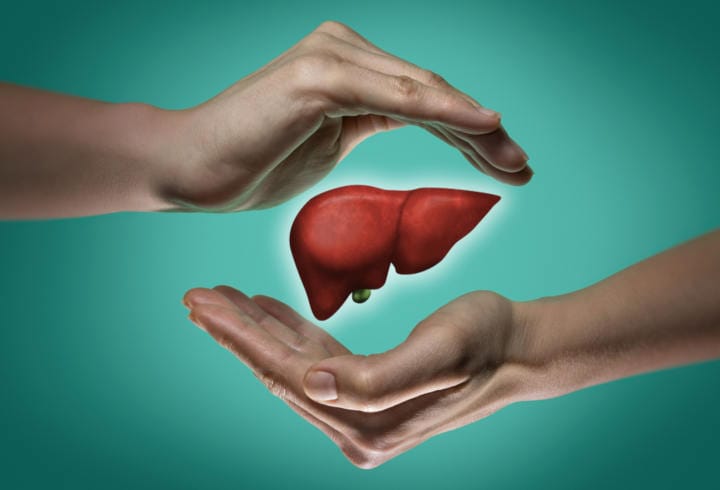
NAFLD is linked to PCOS because at the root they both are caused due to insulin resistance. So the same lifestyle treatment that helps reverse PCOS can help reverse nonalcoholic fatty liver disease (NAFLD).
Q. Do PCOS or emergency contraceptive pills cause infertility?
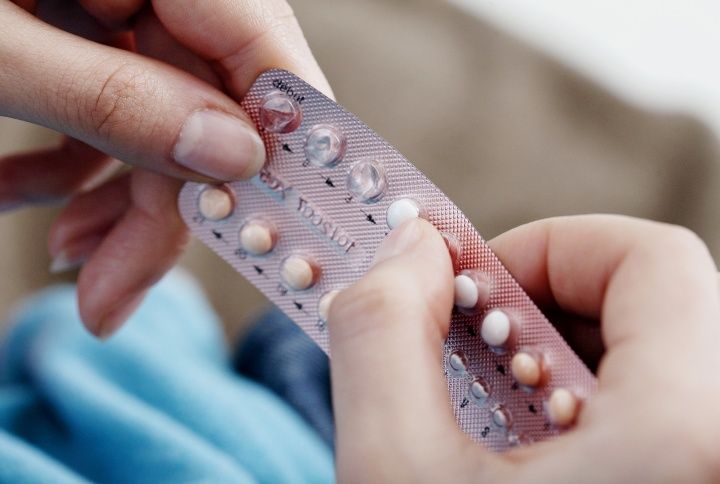
PCOS can reduce fertility but this can be reversed through a lifestyle change. If a patient is taking an emergency contraceptive pill, the doctor needs to know what’s going on in her life. The pill itself may not cause infertility but high-risk sexual behaviour like not using protection, having multiple sexual partners, etc. can create exposure to sexually transmitted diseases (STDs). Many STDs can cause infertility due to scarring of the tubes and the uterus lining. In PCOS there can be unwanted or surprise pregnancies because the lady was not having regular periods so she doesn’t have a “missed period” as the first hint that she might be pregnant!
Q. My cousin is 24. She has a cyst in her ovary and her periods are irregular too. Any advice for her?

PCOS means the ovaries on both sides have multiple cysts. A single cyst is probably a different diagnosis. Her irregular periods need to be evaluated medically.
Click here to read Part 3 of this blog where Dr Roshani shares answers to other frequently asked questions about PCOS.
What’s your biggest concern when it comes to managing your PCOS symptoms? Please share it with us in the comments below!
Join Malini’s Girl Tribe on Facebook to be a part of more such conversations.

